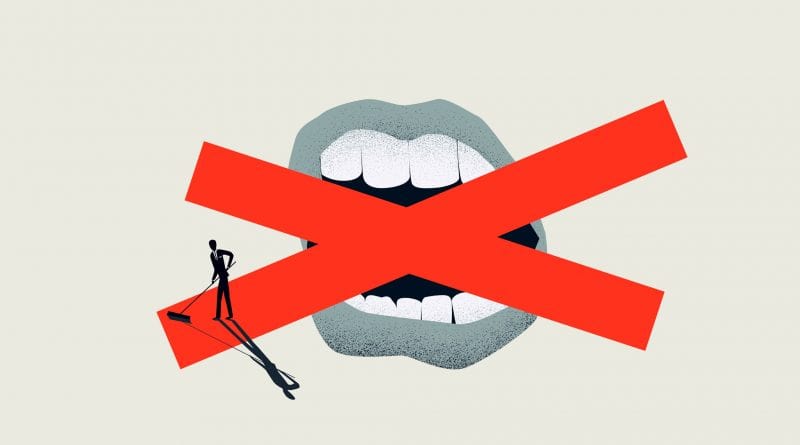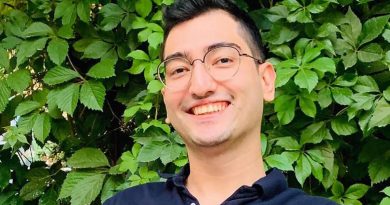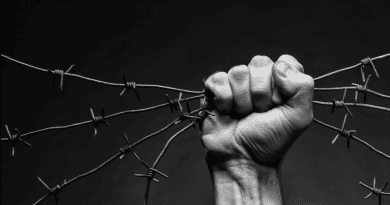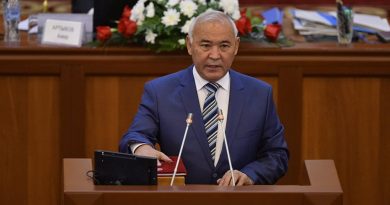Uzbekistan: 20 attacks on journalists were recorded since the beginning of the year
World Press Freedom Day is celebrated with a variety of repressions against journalists who are practically deprived of legal protection and support. Numerous facts of manipulating the media sphere of Uzbekistan testify to this.
Anora Sadikova, editor-in-chief of Rost24, said that she had to remove an article about businessman Jakhongir Usmanov because of threats and pressure.
In the report, Anora Sadikova noted how a chain of several companies leads to offshore companies and financial crimes. It’s noted that Usmanov is the sole beneficiary of Winger Investments Limited, registered in the British Virgin Islands, and also owns accounts in European banks. The entrepreneur is the son of the late senator, former Deputy Prime Minister, head of the Football Federation and the National Olympic Committee Mirabror Usmanov.
According to the online media Gazeta.uz of April 14, the article also spoke about the dubious activities of a businessman, the CEO and founder of Ardus company and the head of Ezgu maksad [Good purpose] charity foundation.
Ezgu maksad foundation, established in 2017, as an exception, used a dubious scheme for receiving funds from foreign individuals and legal entities on a gratuitous basis to settlement accounts serviced by an authorized bank. The organization is also exempt from paying all types of taxes and mandatory payments. The name of Jakhongir Usmanov also appears in the Pandora Archive, which is called one of the largest leaks of financial documents.
The head of the Board of Trustees of the Public Fund for the Support and Development of National Mass Media, Komil Allamjonov, decided to provide moral support to the journalist. He stated that ‘no one has the right to threaten a journalist’ and ‘to threaten in general’. And he confined himself to these words. However, shortly before the bombastic statement, the former press secretary of President Mirziyoyev decided to close the website Uzmetronom using a formal pre-trial procedure, for which he wrote a statement to law enforcement agencies.
The reason was the article “Diamond boy” by Sergei Yezhkov, which is a retelling of the publication of another media – the site Eltuz.com that is blocked in Uzbekistan. Expatriate journalists received evidence of how Allamjonov facilitated the illegal import of jewelry worth $4.2 million into Uzbekistan.
Eltuz’s original publication contained a transparent allusion to the person to whom the jewelry was intended, namely Saida Mirziyoyeva, the deputy head of the Fund and the President’s daughter. Eltuz checked the insider information with the help of other sources and found that a certain Juliet Gurman, accompanied by five porters, brought jewelry, gold and diamonds from the Italian Bvlgari, and products of other brands known for their jewelry, watches, perfumes, accessories and leather goods to Tashkent.
The online media Vesti.uz received information that, after submitting an application, a case was opened against Yezhkov under the third part of Article 139 of the Criminal Code on libel. The founder of Uzmetronom, who survived the years of Karimov’s rule, now faces a heavy fine, compulsory public works, or restriction of freedom for a term of one to three years.
“Now 68-year-old Sergei Yezhkov is de facto under house arrest. The decision to restrict his freedom hasn’t yet been made, no official charge has been filed,” Vesti.uz clarifies. The media recalls that the journalist was awarded the Dustlik order in honor of the 30th anniversary of the country’s independence in 2021. Yezhkov suffers from a serious eye disease, cannot move independently and read documents.
“It’s noteworthy that the content of Yezhkov’s article was retold with impunity by several Uzbek online media, which only confirms the innocence of the journalist and Allamjonov’s desire to take revenge, taking advantage of his coat-tails,” the ACCA expert assessed what was happening.
Yezhkov spoke caustically about Allamjonov more than once. Materials about entrepreneurial activity were posted on Uzmetronom. Five years ago, in the publication “Well, a very talented young man. In wickedness”, it was said that Allamjonov had ‘extensive experience in using administrative levers to advance his private commercial interests’.
“The worldview of the pro-Russian Yezhkov is also unpleasant for an influential person,” the ACCA expert is sure. “It’s quite possible that Allamjonov thought about him and certainly about grants for the foundation at meetings in Geneva.” During the conversation with UN High Commissioner for Human Rights Michelle Bachelet, he said that the support of international organizations is needed to ensure freedom of the media. He called cooperation with the UN Office important for the development of the press ‘and the protection of the population from aggressive and cruel foreign propaganda’.
The journalists of Daryo.uz got into a difficult situation. At one of the trials, they were required to write a letter from the editorial board and a receipt promising not to cover the proceedings until the verdict was passed.
“There is no and cannot be any rule not to cover the process until the verdict is passed,” Madina Tursunova, the lawyer from Tashkent, comments on the judicial arbitrariness. “This contradicts the very principle of openness and publicity of the trial. What then is the point of the presence of the media and journalists at the trial?”
The chief consultant of the press service of the City Court of Tashkent, Sadokat Allaberganova, refused to express her opinion about the gross violation of the rights of journalists, although the media and journalists are not participants in the process and don’t perform procedural rights and obligations. Consequently, there are no legal grounds to require editorial offices and journalists to observe the principle of the presumption of innocence.
Legal nihilism and obvious disdain for laws have become one of the causes of negative processes with freedom of speech. Since the beginning of the year, the Foundation “Justice for Journalists” (UK) has recorded 20 attacks using legal and/or economic mechanisms against media workers in Uzbekistan.




